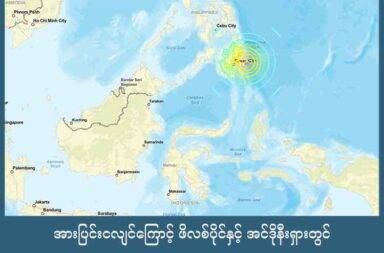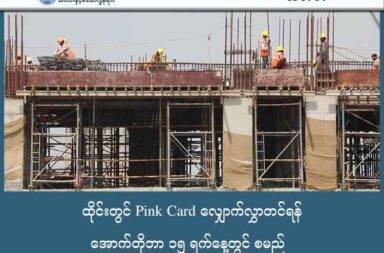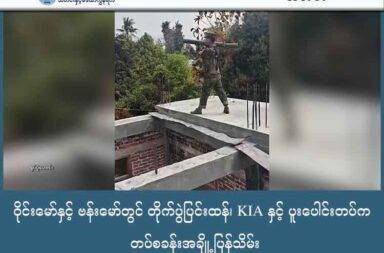Mon Leader: Peace Process Still Deadlocked
NMSP vice chairman Nai Hong Sar speaks about the right to secession, the issue of self-determination, and the NLD’s promises.
By NETWORK MEDIA GROUP (NMG)
Tuesday, August 28, 2018
Ethnic armed organizations like the New Mon State Party (NMSP) will continue to cooperate in hopes of restoring peace in war-torn Burma, the organization’s vice chairman Nai Hong Sar told NMG on Sunday, the 71stMon Revolution Day.
“The Tatmadaw has said that ethnic armed organizations must not walk away from the Union,” he said, referring to the right to secession. “If ethnic armed organizations accept this concept, the Tatmadaw will agree to discuss the issue of self-determination. That’s why the peace process is facing a deadlock.”
The right to secession has been a contentious part of the 21stCentury Panglong Peace Conference sessions, the most recent one having been held in July in Naypyidaw. Any discussion of the principle of secession was omitted from the event, along with talks on self-determination and the drafting of state constitutions.
Even though ethnic groups do not necessarily want to secede from the Union, armed organizations do not want to remove the option from the table, the NMSP vice chairman explained, adding that as long as ethnic and state rights are denied, it is impossible to make a promise not to secede.
The right to secede was included in Burma’s original 1947 Constitution, stating that if groups were unhappy with the state of the country ten years after the 1948 independence, the process for withdrawing from the Union could be initiated. However, Burma came under military rule in 1958 and again in 1962, and no group was able to exercise this right.
The NMSP released a statement on the 71stMon Revolution Day addressing the difficulties in resolving differences between the many stakeholders involved in the peace process. The statement also addressed discontent with the current National League for Democracy (NLD) administration—headed by Aung San Suu Kyi—including its failure to amend the military-drafted 2008 Constitution. The NMSP argued that this—along with the NLD’s reluctance to condemn the Tatmadaw for offensives in ethnic areas—has cost the party popular support.
Nai Hong Sar described disappointment in what the NLD said they would do before being elected in 2015, and what has happened since they took office.
“Before they gained power, the NLD and Daw Aung San Suu Kyi used to say that they would amend the 2008 Constitution, change the political situation and build democracy and a federal Union,” he said. “Since they gained power, they don’t speak out loudly or take action on those things,” the vice chairman added.
The NMSP has signed state- and Union-level ceasefires with the government, and is one of ten ethnic armed groups signatory to the Nationwide Ceasefire Agreement with the government and military.


